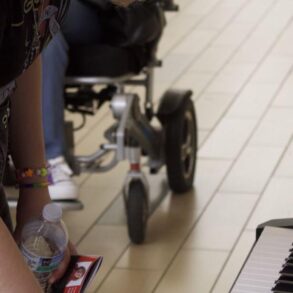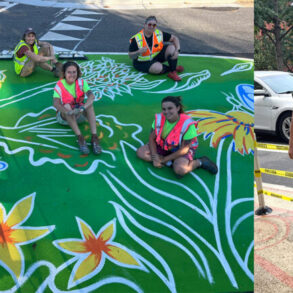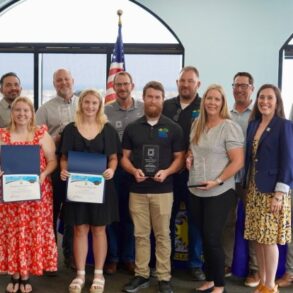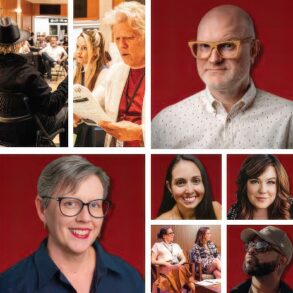It’s easy to fetishise Ritesh Barot. This is because he’s a tangle of long limbs. His legs, miles of them, fold under the table in a writhing and endless spectacle.
When he extends his paw in greeting, they are massive but delicate at the same time. In his hand, yours feels like a little fragile bird.
His face, incredibly and ironically, is dainty, like something painted by an innocent mind.
When he rises from his seat – an act that feels like he’s pulling back gravity – he keeps rising and rising and he doesn’t stop until he’s hovering under the ceiling at a staggering height of 7’ 5”!
You don’t know what that means. You think you have an idea what 7’5” is but you don’t. It’s hard to fully comprehend. It means when he was a teenager, he was taller than everybody in his class, in his school – all his teachers, his classmate’s parents, taller than security.
It means he is always the tallest man in every room he walks into. Being 7’5” means there is nobody he has ever met in his life-who is taller than him. Ever.
However, if you only look at his height you will not see him. For he is a great mind of numbers and economics, a business and financial analyst (Barco Hiring and Leasing Ltd), a humanitarian, conservationist, a reluctant artist (he needs to start painting again), a committed Rotarian, a clothes horse and a recipient of OGW honour.
How did you end up in financial services? [Avoiding the elephant in the room]
Since I was a child, as with traditional Asian families, I was exposed to finance and trade very early in life. My father was in the finance field and as children, we were often taken to the workspace so it sort of rubbed off.
Later, I went to study in the United Kingdom – University of Westminster- majoring in business and economics. After my post-graduate, I managed to secure a job where there was an element of finance involved.
I started lecturing undergraduates as well. Because we had family businesses in Kenya, I had to return home. And since that time – 2011 – I have been involved with monitoring the money markets.
What did your folks do?
My dad is a private person, and I wouldn’t wish to talk about him at length, but he was in finance. Before that he was a distributor of imported hardware; paints and all that.
My mom has passed on. She was entrepreneurial and played an active role in my life. I’m a fourth-generation Kenyan, my great-grandfather came to Kenya in the 1900s. [Pause] Childhood was good.
I was a bookworm who also enjoyed the outdoors. I had a lot of exposure to books because my grandfather, was also a very avid and keen reader, and I spent a significant amount of time with him.
What kind of reading are you drawn towards now?
Oh, I love to read financial journals and annual reports of companies.
So, the very exciting stuff.
[Chuckles] The heavy stuff. But I also enjoy all sorts of autobiographies. I love success stories and motivational reading. But more or less right now, especially at certain times of the year when there’s accessibility to the annual reports, my entire focus goes on analysing annual reports.
Have you always been very cerebral? Is that what has always driven you?
Actually, yes to both. I’ve always been very competitive, especially in academics. I was a scholarship student at the university. Perhaps this is why I enjoy meritocracy, where individuals are actually given the opportunity if they outperform others.
I like the element of reward for achievement. And that excited me, and that system of reward kept me doing better each year.
What did you want to be?
It’s an interesting question because many individuals have a clear-cut idea of who they want to be. And many actually look for that role model.
It was very different for me because I used to come in contact with certain individuals and I’d analyse their attributes. So, as opposed to following one particular stencil of an individual, I’d isolate what I liked about them.
There are people I admired for their oral prowess or behaviour, or their sense of organisation and analytical skills. So, for me, it was more like a pick and mix as opposed to just following one particular individual.
What exciting things are happening in your life now as a 42-year-old man?
I’ve always been a very responsible individual, beyond my age, even. I think after 41, one must be very sincere with certain aspects of their life.
We have to be aware of who we want to be around, we want to make sure that we curate the individuals on a social level. I’m more into serious friendships.
I like to hang around individuals who I know are going to enrich my thinking as opposed to just anything frivolous. And that’s why I’ve been very active in the Rotary Club as well since 2016.
I also enjoy nature. I make time during the weekends to spend time outdoors. We are blessed to have this wonderful climate and all these green spaces around us. It’s really something which the government should take to maintain the green spaces.
You are a clothes horse, going by your immaculate sense of style. Who is your tailor?
A couple of tailors locally. When I travel, I also tend to look for tailors internationally. I grew up seeing my grandfather and my father all dressing up to the T every single morning.

Ritesh Barot is also a humanitarian, conservationist, occasional artist and the recipient of OGW honour.
Photo credit: Pool
My great-grandfather was also a clothing merchant in the early 1900s. So, clothes are important to us, I think it makes or breaks an individual.
Do you own two hundred suits?
[Laughs] No. I own a number of suits. That’s all I will say.
Maybe we should now talk about your height. Just how tall are you?
I’m close to seven foot five inches. I’m always knocking my head against things. [Chuckles]
Whoa! What shoe size do you wear?
Maybe size 20?
Where on earth does one buy a size 20 shoe?
I’m not sure but mine are handmade. Shoes have not been a problem, actually. Way back I got a whole bunch of them imported once. So that worked for me. I’m also glad that now there are more shoemakers to choose from.
When was the last time you met somebody taller than you?
I have met a couple of people who are very tall but not exactly taller than me.
I don’t suppose you fly economy class at all, with those legs.
[Laughs] You see, when you have such a height, Business Class is your Economy. It’s not possible to travel Economy. When I was a child, I flew Economy but that became impossible after my teenage years.
I think airlines should also be aware that people don’t fit in one stencil. There could be some odd, unique cases, you know?
Do you find your height to be a distraction when people meet you? Do you find that it takes over conversations?
I enjoy that. It’s a blessing. High school is always about fitting in but with my height, I was always standing out. My growth spurts started at 13 years at St Austin’s Academy. I was six foot three by Form Three. I was grateful for it because I was trying to fit in.
The paradox was that although I was trying to fit in socially in school, I was standing out academically and physically. There was a lot of attention that came with both. So, I asked myself what I was going to do with my height.
What are you going to do with that attention? I’m always out and about in public spaces, I know I’m going to draw attention. What message was I going to carry across? I had to be more meaningful with my physicality because people were watching me.
Of course, in my case, they’re also reading what I’m writing. [He contributes to this paper]. I think I’ve just engulfed myself in that pool of responsibility because, in my free time, I’m also in rotary, which requires, again, a certain level of responsibility.
Where does this height come from; mom’s or dad’s side? And are your siblings as tall?
My brother is 6’10”. Both my maternal and paternal grandfathers were tall. This, again, makes me even more grateful, because I’m trying to remember that quote from this Marvel movie with something about power comes great responsibility.
Married? Children?
So, senior bachelor.
[Chuckles] More like a junior bachelor.
Are you interested in marriage and children?
That I can’t disclose right now. I think I’ll keep that aspect away from the media.
Two people you’d like to meet dead or alive.
Mahatma Gandhi and Warren Buffet. [Pauses] Why can’t you give me a chance to meet twenty people? Can I add a group of people? I’d like to meet the fathers of modern-day economics and sit and listen to them, because each of them has rather polarising ideas of what direction the economy should take and what policies to put in place to help economics in a certain direction.
And at this point, in all these global geopolitics and turmoil, we need them to come back, and debate and we need to listen to them. We won’t have a cookie-cutter solution, but I think each one of those ideas will come in handy.
Is there anything that makes you anxious now?
Nothing really because I’ve realised that even though there are things that you want to see around you improve, time has a role to play.
So as part of growth, things that I would have worried about 15 years ago do not worry me now. It’s a factor of making sure that you have a knowing and understanding of the dynamics of the things around you.
We have also seen time and again that things resolve themselves, business cycles, the economy, health.
What would you change in your past?
I wish I had followed my passion for painting more seriously. I enjoy painting as a hobby. I have to get back to it at some point. I write, though. That’s an artistic pursuit, I guess.
My hobby, though, is also seeping into my career because I love reading things that are more based on economy and global geopolitics and all this and how it influences elements of economies. And like I said, I love nature. So not landscapes per se, but I like painting. Very imaginative art.
Closing remarks? A statement? An idea of its prime time.
Nature has blessed us greatly. We all have to be our brother’s keeper and that includes our environment.
Seeing Kenya Power brutally chop down trees just because of some wiring is heartbreaking.
It’s time that we reroute and go into underground cabling and not destroy the environment. We gained independence at the same time as Singapore, they have maintained green spaces. We can do the same.
What would excite me the most is to see the country reach the best of its potential.
That there is disclosure and full accountability. It’s very easy for us to talk about corruption and all this, but at the same time, it all starts with something as small as having full disclosure and accountability. So I think my parting message is, let’s all be more responsible.
This post was originally published on this site be sure to check out more of their content




